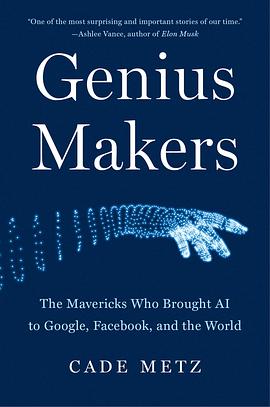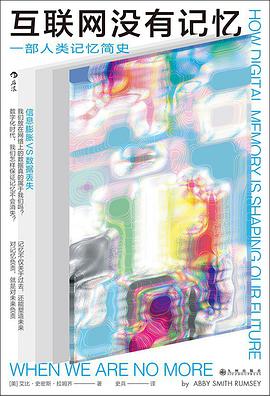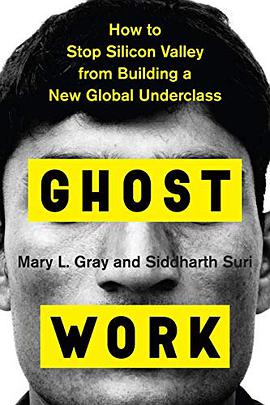Genius Makers Goodreads 豆瓣
作者:
Cade Metz
Dutton
2021
- 3
"This colorful page-turner puts artificial intelligence into a human perspective. Through the lives of Geoff Hinton and other major players, Metz explains this transformative technology and makes the quest thrilling."
—Walter Isaacson, author of The Code Breaker
Recipient of starred reviews in both Kirkus and Library Journal
THE UNTOLD TECH STORY OF OUR TIME
What does it mean to be smart? To be human? What do we really want from life and the intelligence we have, or might create?
With deep and exclusive reporting, across hundreds of interviews, New York Times Silicon Valley journalist Cade Metz brings you into the rooms where these questions are being answered. Where an extraordinarily powerful new artificial intelligence has been built into our biggest companies, our social discourse, and our daily lives, with few of us even noticing.
Long dismissed as a technology of the distant future, artificial intelligence was a project consigned to the fringes of the scientific community. Then two researchers changed everything. One was a sixty-four-year-old computer science professor who didn’t drive and didn’t fly because he could no longer sit down—but still made his way across North America for the moment that would define a new age of technology. The other was a thirty-six-year-old neuroscientist and chess prodigy who laid claim to being the greatest game player of all time before vowing to build a machine that could do anything the human brain could do.
They took two very different paths to that lofty goal, and they disagreed on how quickly it would arrive. But both were soon drawn into the heart of the tech industry. Their ideas drove a new kind of arms race, spanning Google, Microsoft, Facebook, and OpenAI, a new lab founded by Silicon Valley kingpin Elon Musk. But some believed that China would beat them all to the finish line.
Genius Makers dramatically presents the fierce conflict between national interests, shareholder value, the pursuit of scientific knowledge, and the very human concerns about privacy, security, bias, and prejudice. Like a great Victorian novel, this world of eccentric, brilliant, often unimaginably yet suddenly wealthy characters draws you into the most profound moral questions we can ask. And like a great mystery, it presents the story and facts that lead to a core, vital question:
How far will we let it go?
—Walter Isaacson, author of The Code Breaker
Recipient of starred reviews in both Kirkus and Library Journal
THE UNTOLD TECH STORY OF OUR TIME
What does it mean to be smart? To be human? What do we really want from life and the intelligence we have, or might create?
With deep and exclusive reporting, across hundreds of interviews, New York Times Silicon Valley journalist Cade Metz brings you into the rooms where these questions are being answered. Where an extraordinarily powerful new artificial intelligence has been built into our biggest companies, our social discourse, and our daily lives, with few of us even noticing.
Long dismissed as a technology of the distant future, artificial intelligence was a project consigned to the fringes of the scientific community. Then two researchers changed everything. One was a sixty-four-year-old computer science professor who didn’t drive and didn’t fly because he could no longer sit down—but still made his way across North America for the moment that would define a new age of technology. The other was a thirty-six-year-old neuroscientist and chess prodigy who laid claim to being the greatest game player of all time before vowing to build a machine that could do anything the human brain could do.
They took two very different paths to that lofty goal, and they disagreed on how quickly it would arrive. But both were soon drawn into the heart of the tech industry. Their ideas drove a new kind of arms race, spanning Google, Microsoft, Facebook, and OpenAI, a new lab founded by Silicon Valley kingpin Elon Musk. But some believed that China would beat them all to the finish line.
Genius Makers dramatically presents the fierce conflict between national interests, shareholder value, the pursuit of scientific knowledge, and the very human concerns about privacy, security, bias, and prejudice. Like a great Victorian novel, this world of eccentric, brilliant, often unimaginably yet suddenly wealthy characters draws you into the most profound moral questions we can ask. And like a great mystery, it presents the story and facts that lead to a core, vital question:
How far will we let it go?


